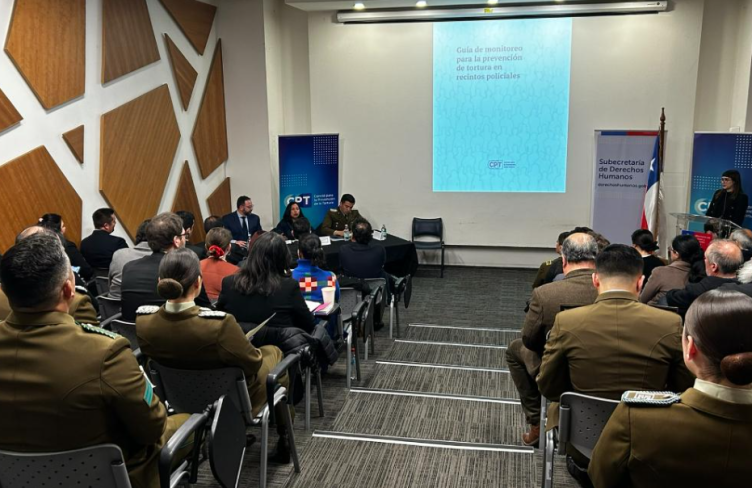
On 26 and 27 September 2018, the Drafting Group tasked with the development of a set of international guidelines for investigative interviewing and associated safeguards convened for the first time in Geneva to draw up the main lines of the future protocol. The workshop was hosted by the APT, together with the Anti-Torture Initiative (ATI) and the Norwegian Centre for Human Rights (NCHR) which, together, form the Coordination Group managing the process for the development of the guidelines.
Over the course of the two days, the drafters – leading experts in the fields of torture prevention, human rights, criminal justice, criminology, policing, the laws of armed conflict and counter-terrorism, and psychology – made good progress towards the draft guidelines, which should be finalised in the summer of 2019.
“The workshop constituted a milestone in this process, as the first opportunity for drafters to meet in person and delve into critical issues of substance and organisation,” explained APT’s Legal and Detention Adviser, Anne Lardy, also a drafter and member of the Coordination Group. “All the drafters were especially pleased to have progressed towards developing an outline that covers key topics relevant to both the investigative interviewing model and the legal and procedural safeguards associated with it.”
In addition to the outline, the group also achieved consensus on important questions of terminology, defined its working methods, and addressed other organisational matters. The APT, together with the ATI and the NCHR, is coordinating the process to provide practical guidance for law-enforcement on the conduct of effective, ethical, and non-coercive interviews.
By championing interviewing and investigation practices centred on the principles of the presumption of innocence and the pursuit of truth, and by facilitating the implementation of essential safeguards associated with questioning, the guidelines will help prevent miscarriages of justice, foster trust in public institutions, and promote the rule of law.
The Drafting Group will continue its work remotely over the coming months, with a view to developing a first draft of the guidelines by early 2019, in consultation with the Steering Committee charged with leading the process.
The first meeting of the Drafting Group was made possible thanks to the support of the Danish Ministry of Foreign Affairs.
For up-to-date information about the process, please click here.


